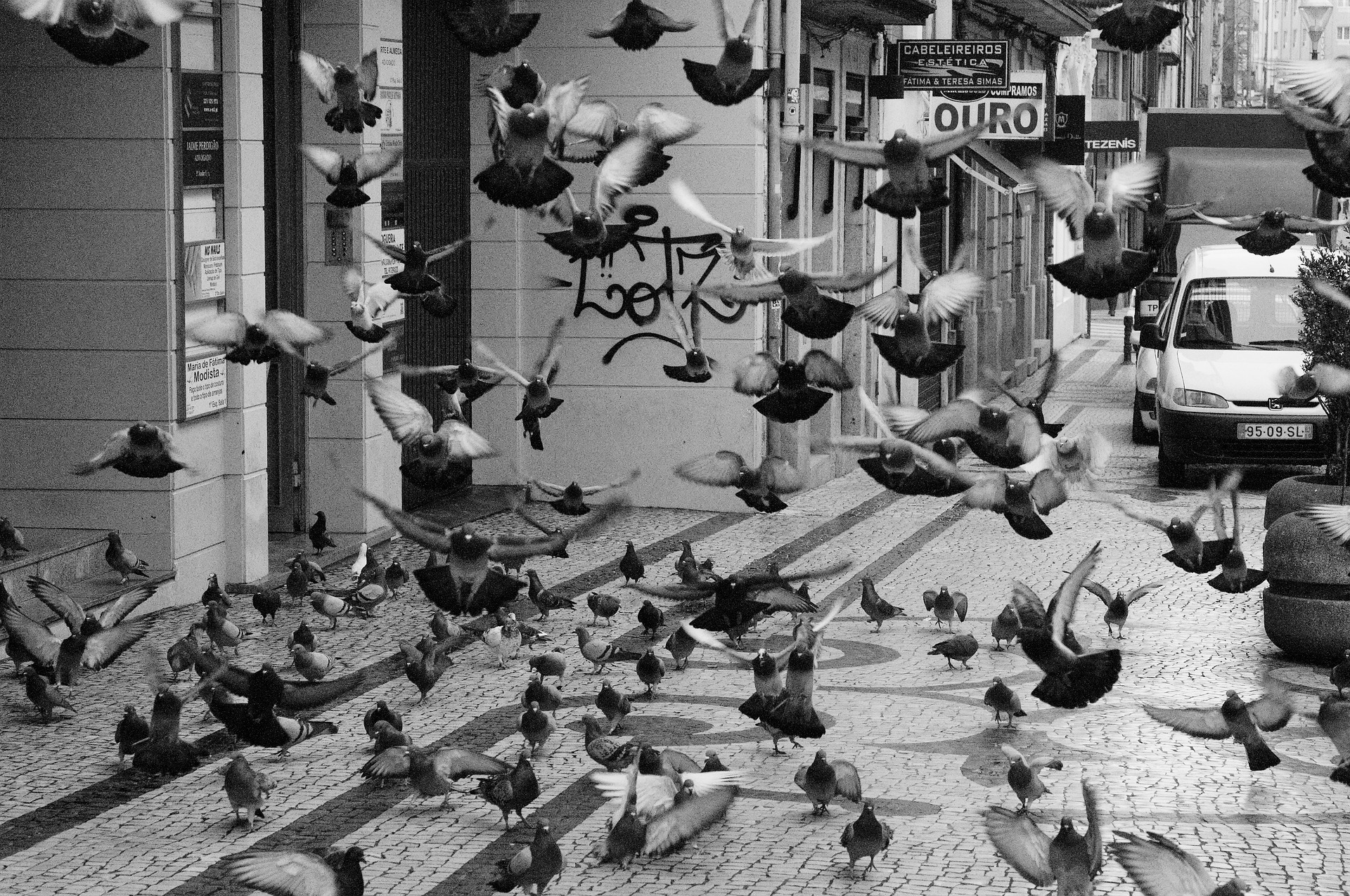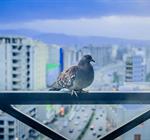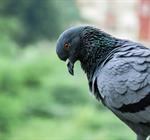
29 Mar 2021 | Apex Environmental Services (UK) Ltd
Many people do not pay much attention to the birds perched on their homes or workplaces.
Often, birds stay for a short period, using your building as a stopgap before moving onto new beginnings. However, when birds linger and decide to make your house their home, serious problems can occur.
Bird infestations can cause a range of issues for your building as well as your health, and should not be ignored.
The most common birds that cause problems in the UK are pigeons, house sparrows, gulls, and starlings.
Signs of Bird Infestation
The first and most obvious sign of a bird infestation is visually seeing them lingering and regularly nesting on the property. You might be noticing families perched on your roof, gutters, or porch. You will not only be seeing the birds themselves but their nests.
Secondly, the sounds of nesting birds are distinctive. Their noises may be distracting your sleep, as the birds can be particularly vocal early in the morning. For the office – the bird sounds can be extremely distracting for your staff and dramatically decrease productivity.
Another physical sign of a bird infestation is an increased amount of bird droppings, known as guano. Bird droppings are a natural part of life and are relatively insignificant most of the time. However, if you begin to notice them daily around your property, birds are likely becoming an issue.
Finally, you may be noticing damages around the building; which can come in a variety of forms. The birds may be destroying items whilst trying to scavenge for food. In the workplace, this may include damaged stock. Additionally, debris from bird nests can cause severe issues. Twigs and feathers can block gutters causing annoying, time-consuming, and expensive problems for your family.
Particular Pigeon Diseases
In the UK, pigeons can be a particular issue. They not only look unsightly, but they can cause a massive spectrum of health concerns.
Salmonella
Salmonella is a bacterial infection that can cause stomach upset and diarrhoea in humans.
The bacteria commonly spreads to humans when we clean up bird droppings. This is why it is integral that a mask and gloves are worn when carrying out this job.
Additionally, the guano bacteria can contaminate the building's water and be sucked through ventilation systems and air conditioning. This can cause particular problems in corporate kitchens.
Bird Mites
Bird mites live in the skin of many different birds, including pigeons. So, when a home or workplace has a pigeon issue, the mites can quickly infest the property.
Pigeons often nest on the roofs of residential homes, so the mites can rapidly find their way into your attic and move through the rest of the house.
Bird mites are tiny and will cause very small, extremely itchy bites across the body. These bites take a long time to heal and do not stop itching. They are challenging to get rid of, and professional eradication methods will be necessary.
Histoplasmosis
Histoplasmosis can be caused by a fungus that grows in bird droppings.
The disease thrives in damp areas, which is why it is so prevalent in guano. When contracted by humans, histoplasmosis can cause severe issues with the lungs. It can also cause fatigue, fever, coughs, and chest pains.
The symptoms of histoplasmosis generally present themselves 1-3 weeks after the infection has occurred. Although the disease cannot be transmitted from person to person, it can be picked up from cleaning up pigeon droppings. For those with weakened immune systems, histoplasmosis can cause severe problems requiring medication.
Cryptococcosis
Around 80% of all pigeon or gull nests test positive for cryptococcosis.
The disease can be transmitted from pigeon droppings to humans easily. Cryptococcosis can cause respiratory issues but can also affect the central nervous system. Although rare, cryptococcosis shows how dangerous pigeons infesting the home can be.
Feeding Pigeons
You have likely seen many people feeding pigeons in the city centres and parks alike. However, this is not good for the environment or the birds.
First and foremost, human food lacks the nutrients that birds need to survive. Secondly, feeding the pigeons encourages them to return, looking for a regular food source. Feeding pigeons near to work or home, convinces them to return and breed near the property.
Feeding any bird will make them depend on humans and remove their natural ability to find food.
Aggressive Behaviour in Gulls
Gulls can be extremely aggressive, especially if they are trying to provide for their young. They are known to become hostile towards humans as a defence mechanism to ensure their family's survival.
If you become aware of gulls nesting on your property, you must seek professional help immediately.
How Apex Help
Protecting your buildings, either residential or business properties, is our forte.
We will visit the property, assess the situation, and provide a solution that meets your current needs.
Dealing with your bird infestation will likely require a four-step method.
A consultation to assess the current situation. At this point, we can discuss the options available and give our advice on the most appropriate solution.
Removing any birds which are currently nested. Depending on the infestation level, various methods are available, although the most likely will include bird scaring.
Clean and remove evidence. This will involve the removal of nests and debris, as well as guano clearance
Prevention for the future. Once the birds and nests are removed, you must prevent them from returning. Durable prevention methods such as bird spikes provide a solution for the long term.
We deal with a spectrum of issues daily. A discussion with our team will help you identify the best solution for your unique situation.
To find out more, contact Apex Bird Control now on 01256 578025 or email us at info@apexbirdcontrol.uk.


